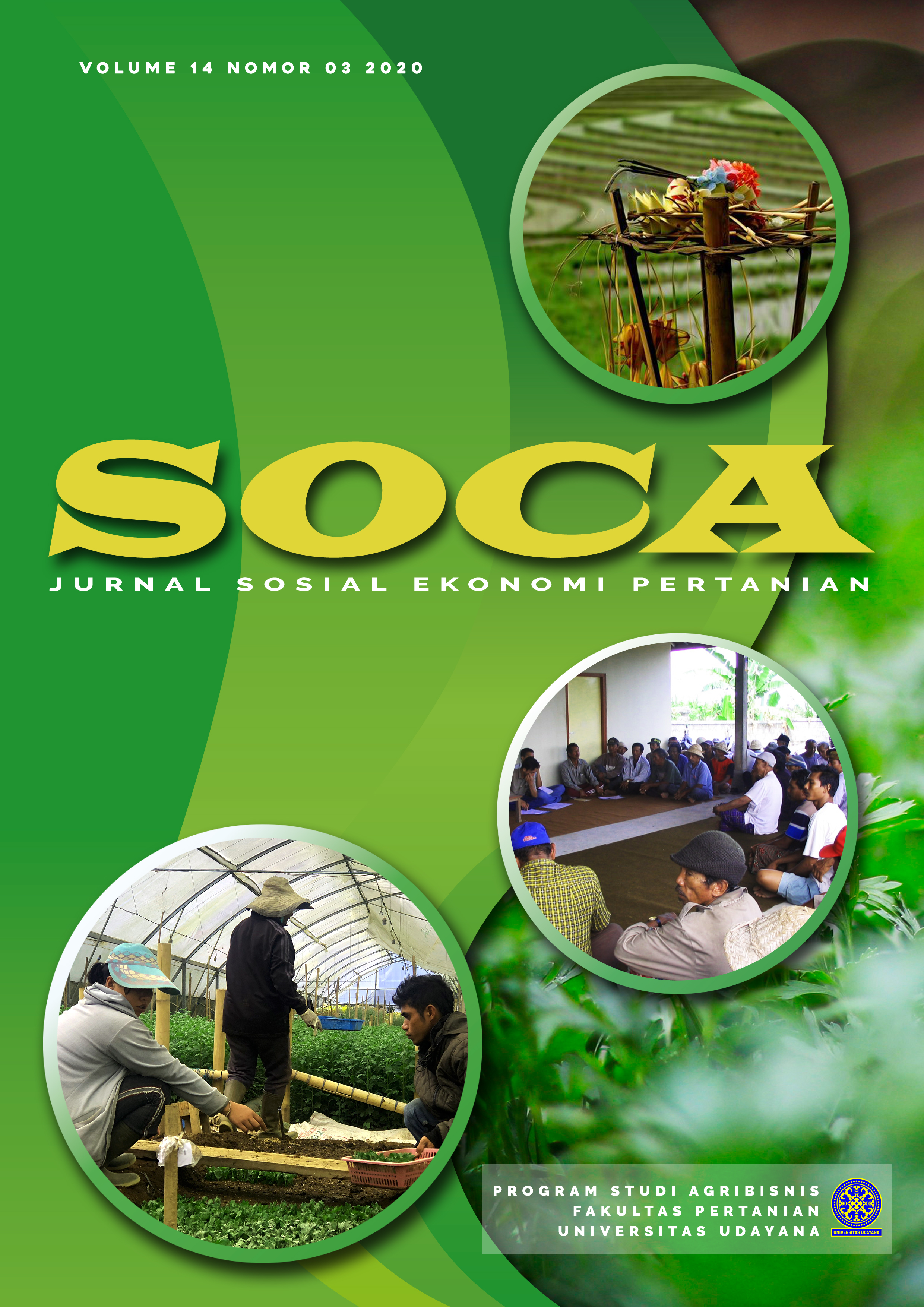The Development of Community-Based Ecotourism in Border Area of Sambas Regency
Abstract
Community-based ecotourism is a strategy done to develop an area through the improvement of the tourism sector by offering natural tourism sites that preserving the environment and involving the community skill in managing the tourism activities. This study aimed to identify the development of the community-based ecotourism in the border area of Sambas Regency. There were 30 key participants involved in this study. A questionnaire consisted of four main criteria (environmental, economy, social, and facility) employed in this study which then analyzed by the AHP technique. Statistical analysis showed that the economy criteria was having the highest weight with a total of 0.535, followed by the environmental, facility, and social criteria with a total of 0.287, 0.105, and 0.074 respectively. There were three alternatives of community-based ecotourism analyzed to improve the community income: beach, turtle, and mangrove ecotourism. The statistical analysis showed that beach ecotourism gained the highest score to be placed as an alternative priority (0.593).
Downloads
References
Gujarati, D. N. (2007). Dasar-Dasar Ekonometrika. Jakarta: Erlangga.
Muhammad, F. (2009). Metode Penelitian Kuantitatif. Semarang: Walisongo Press.
Naisbitt, & Jhon. (1994). Global Paradox. Jakarta Indonesia: penerbit Binapura Aksara.
Pratiwi, B. D., & Pinasti, I. S. (2017). Pariwisata dan Budaya (Studi Peran Serta Masyarakat Lokal dalam Pengelolaan Pariwisata di Kampung Pitu, Nglanggeran, Patuk, Gunung Kidul). Jurnal Pendidikan Sosiologi.
Priono. (2012). Pengembangan Kawasan Ekowisata Bukit Tangkiling Berbasis Masyarakat. Jurnal Perspektif Arsitektur, Volume 7 No 1.
Qomariah, L. (2009). Pengembangan Ekowisata Berbasis Masyarakat Di Taman Nasional Meru Betiri. Bogor: Institut Pertanian Bogor.
Sabahan, & Evita, R. (2017). Zonasi Lanskap Ekowisata Pesisir Kecamatan Paloh Kalimantan Barat. E-Jurnal Arsitektur Lanskap, vol 3, 42-38.
Sugiyarto, & Amaruli, R. J. (2018). Pengembangan Pariwisata Berbasis Budaya dan Kearifan Lokal. Jurnal Administrasi Bisnis, 7, 45-52.
Wunder. (2000). Ecoturism and economic intensive – an empirical approach. Dasar-Dasar Ekowisata. Edisi Pertama. Cetakan Pertama. Jawa Timur: Bayumedia Publishing.
Yulianda, F. (2011). Ekowisata Bahari Sebagai Alternatif Pemanfaatan sumberdaya pesisir berbasis konservasi. Jurnal Agribisnis, 3, 192-199.













